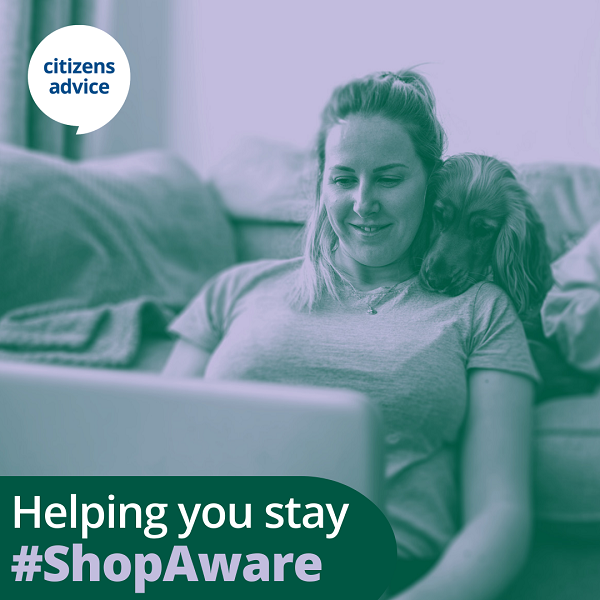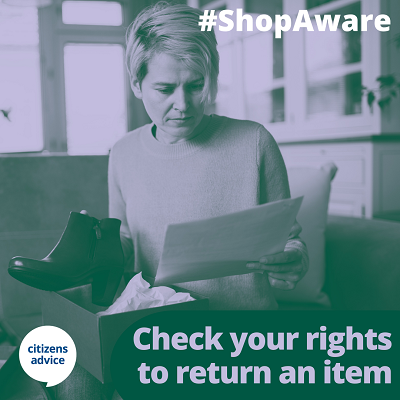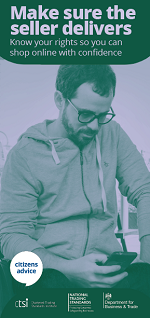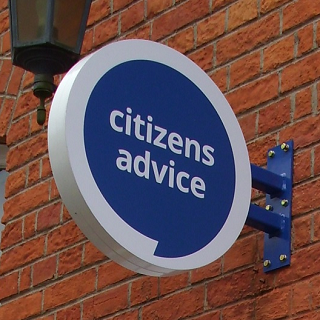 As part of our annual awareness campaign we’re encouraging consumers to know their rights when shopping, including what to do if you run into issues after purchasing, have complaints around defective goods or substandard services, and when sellers fail to deliver.
As part of our annual awareness campaign we’re encouraging consumers to know their rights when shopping, including what to do if you run into issues after purchasing, have complaints around defective goods or substandard services, and when sellers fail to deliver.Citizens Advice Wiltshire also offers top tips to help consumers shop safely this year:
- It’s the seller’s responsibility to make sure the item is delivered to you. Check the delivery address you gave the seller and contact them to ask where your order is.
- If the seller claims they've delivered it or don't know where it is, you can ask for a redelivery. You might be able to get a refund in some circumstances.
- If something’s gone wrong with an item you’ve bought, you might be entitled to a refund, repair or replacement. You’ll have legal rights if the item you bought is:
- broken or damaged ('not of satisfactory quality')
- unusable (‘not fit for purpose’)
- not what was advertised or doesn’t match the seller’s description"
- If you buy in store, you don’t have a legal right to return goods if you’ve simply changed your mind. Lots of shops have their own policies and do allow this, but time limits can vary.
- If you buy online you usually get a right to cancel, known as a cooling off period, but there are exemptions including bespoke or personalised goods, and computer software where the seal is broken.

- Pay by card so you have another form of protection if there’s a problem. The other way would be by making a chargeback or section 75 claim to your card provider.
- Be cautious if you’re asked to pay in an unusual way such as in iTunes vouchers, crypto currency or via bank transfer as this could be the sign of a scam.
- Get proof of your return - a receipt from a shop or proof of postage. If you pay for return postage check the service you use covers the value of the goods.
- Using a service that includes tracking means you can prove when a trader received your return.
Consumer Awareness Week 2024 (29 January - 4 February 2024)
 This Consumer Awareness Week (29 January - 4 February 2024) we’ll also be sharing our tips and advice on social media and through the media to raise awareness and understanding with consumers on how to shop wisely, what to look out for, and what to do if things go wrong.
This Consumer Awareness Week (29 January - 4 February 2024) we’ll also be sharing our tips and advice on social media and through the media to raise awareness and understanding with consumers on how to shop wisely, what to look out for, and what to do if things go wrong. - Raise awareness and understanding with consumers on how to shop wisely, what to look out for, and what to do if things go wrong.
- Educate consumers on their rights, particularly when shopping from online marketplaces.
- Empower consumers to seek a remedy if things go wrong.
- Raise awareness of where consumers can go if they need more advice and help with an issue.
What else can you do to shop with confidence?
Useful links
- Our consumer advice pages, including the following advice pages for when something's gone wrong with a purchase:
-
- Return faulty goods
- Claim using a warranty or guarantee
- If a company stops trading or goes out of business
- If something is advertised at the wrong price
- Report fake or counterfeit goods
- If something you ordered hasn't arrived
- If you think you've bought stolen goods
- Claim compensation if an item or product causes damage
- Getting your money back if you paid by card or PayPal
- If you're unhappy about poor service
- Our Consumer template letters
- Consumer Service Helpline details
- Consumer Friend website
 Download our 'Make sure the seller delivers' leaflet to have all our advice and tips on how to shop confidently handy in one place
Download our 'Make sure the seller delivers' leaflet to have all our advice and tips on how to shop confidently handy in one place



